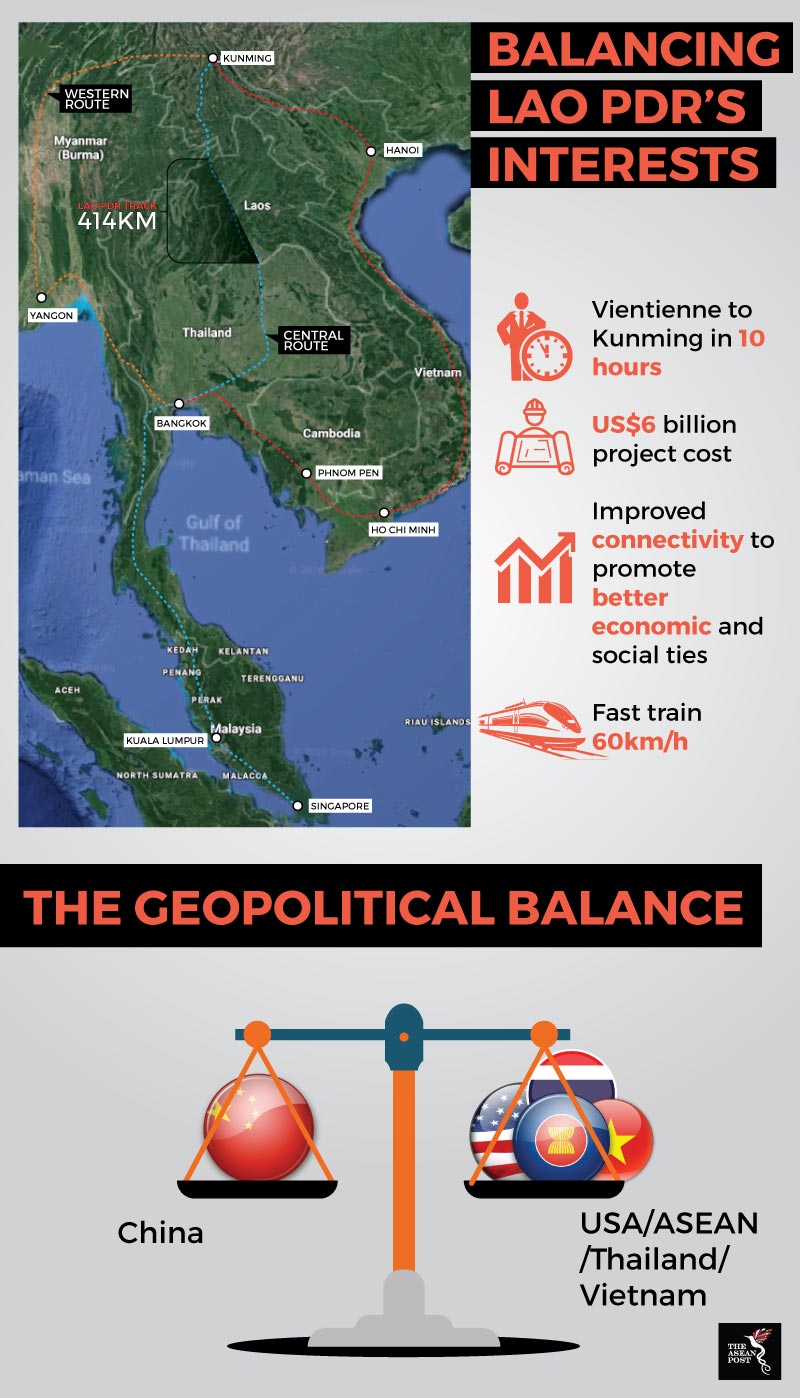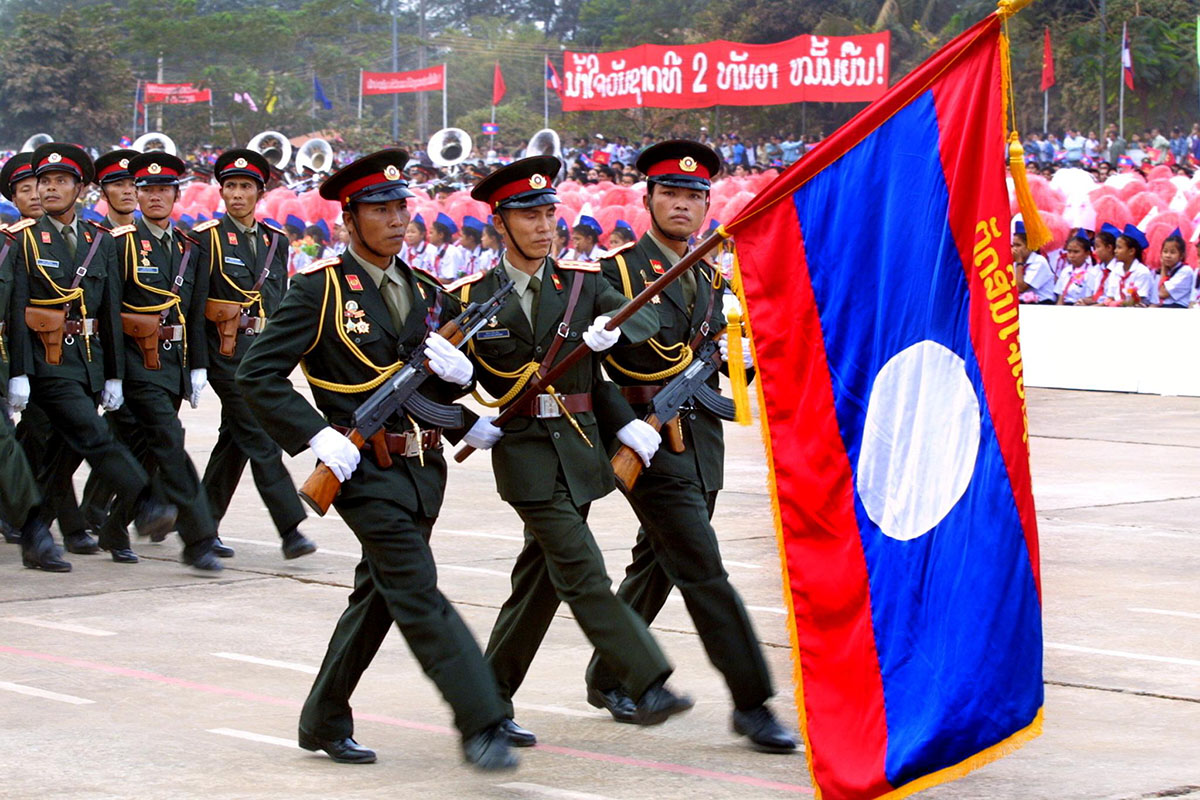It is no secret that China is fast expanding its influence within the Southeast Asian region as it attempts to win over nations by offering lucrative pipelines of investment and credit. Thus far, the principle benefactor of Beijing’s actions is Cambodia, which hasn’t been shy to admit that China is the country’s “most trustworthy friend.”
However, often overlooked in this game of regional geopolitics is the landlocked country of Lao PDR. In a briefing paper published by the Singapore-based ISEAS – Yusuf Ishak Institute, author Edgar Pang wrote that besides Cambodia, Lao PDR is one of China’s most trusted regional allies and Chinese influence is likely to grow even more as the country becomes increasingly reliant on Beijing.
Nevertheless, what distinguishes Lao PDR’s embrace of China is that it is more “even-handed” in its approach.
“China may grow in importance for Lao PDR but the latter understands the need to strive for balance with its neighbours and major powers,” Pang wrote.
Lao PDR’s approach is a textbook case in the practice of small state diplomacy. Lao PDR finds itself in a position where it must swim with the sharks or be eaten. In other words, its friendliness towards China is merited because China represents a huge influence that it cannot possibly fend off by itself.
Fruitful foreign policy
Beijing’s investments in the landlocked state are plentiful, especially in the infrastructure, hydropower, mining and agricultural sectors. The landmark US$6 billion 414-kilometre railway project connecting both countries broke ground in December 2016 and is part of Beijing’s ambitious Belt and Road Initiative (BRI).

Source: Various sources
Despite that, Lao PDR does not harbour plans to become a Chinese client state, although many have deemed it as such because of its shared communist ideology. An example of Lao PDR’s savvy diplomatic choreography is its infrastructure in downtown Vientiane, which boasts an airport built by Japan, a riverbank redevelopment project undertaken by South Korea and its international conference halls erected by China. It also maintains cordial relations with the United States (US), most evident when former US President Barrack Obama visited the country in 2016 during Lao PDR’s chairmanship of the Association of Southeast Asian Nations (ASEAN) – the first sitting US President to do so.
Lao PDR’s involvement within ASEAN is also something of a barometer towards the nation’s conduct of diplomacy and foreign policy posturing. The 10-member association is widely popular, especially amongst young Laotians.
In the most recent survey on attitudes towards ASEAN by the ASEAN Foundation, 99 percent of Laotian respondents agreed that membership in ASEAN was beneficial to their country and 92.5 percent of them agreed that membership was indeed beneficial to them personally. Besides that, 96 percent felt that they were citizens of ASEAN – compared to the ASEAN average of 76.8 percent.
Vientiane has also proven during its chairmanship that it is able to use its leadership within the organisation to find middle ground. This is especially the case with regards to hot button issues like the South China Sea conflict.
Lao PDR’s fondness of its neighbours, especially Vietnam, is unlikely to anger Beijing so far as it manages to keep up with its balancing act. The South China Sea dispute represents only a small facet in the multidimensional relationship that countries like Lao PDR share with China. It still depends very much on its neighbours, Vietnam and Thailand, with which it shares a complex history, for assistance. Hence, it is able to leverage on its relations with neighbouring states to project a foreign policy posture towards China that is not entirely docile, but firm where necessary.
Lao PDR’s centrality whilst navigating the tricky waters of diplomacy is something that the state can be proud of. As China’s geostrategic game plan continues to unfurl over the coming years, Lao PDR must prepare to entice it further. Whether it would one day swoon over lucrative Chinese aid is something no one can predict at the moment. But given its track record of diplomacy, one thing is certain – Lao PDR knows how to play the game of geopolitics well enough to protect its interests.
